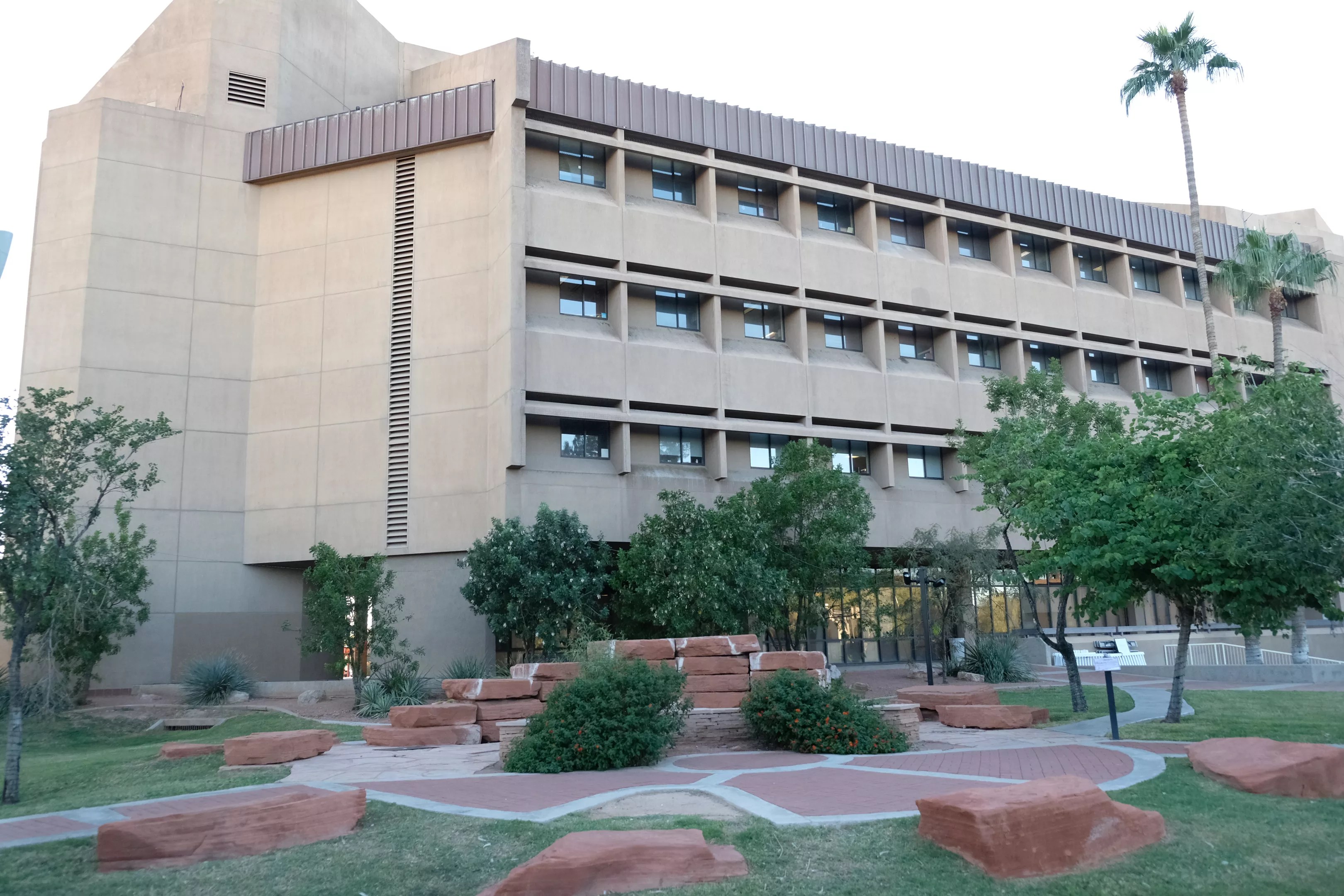
Katya Schwenk

Audio By Carbonatix
Despite criticism from the American Civil Liberties Union of Arizona, the city of Glendale is standing by a sweeping ban on panhandling that the city council voted into law last October.
The panhandling ban came into effect in the lead-up to the 2023 Super Bowl held at State Farm Stadium in Glendale. Though city leadership has maintained that the ban’s primary intention is to ensure pedestrian safety, it was one of several Super Bowl-related policing efforts that was criticized by civil rights advocates.
On Tuesday, the Glendale City Council voted to clarify some portions of the new ordinance. But so far, the city’s police department is still enforcing it, the city said last week.
Currently, asking for money at bus stops, within 50 feet of a bank or ATM, or within 25 feet of any private business is outlawed in the city – essentially making panhandling illegal on any commercial strip.
Panhandling in an “aggressive manner” on any public property is also banned under the ordinance. So is asking for money from people in cars or stopped traffic or while standing on a median.
A first violation of the law results in a civil penalty – a warning – but subsequent violations within a year are considered class one misdemeanors, which under Arizona sentencing law can result in up to six months of jail time.
“Don’t focus on the violations. Focus on how much safer our streets will be and how much safer it will be for commuters visiting downtown Glendale or anywhere in Glendale,” Glendale Vice Mayor Jamie Aldama told Arizona’s Family after the ordinance passed in October.
In January, the ACLU of Arizona sent the city a lengthy letter demanding that it stop enforcement of the ban, calling it a “blanket ban on speech to reduce public discomfort about panhandling in anticipation of the Super Bowl.” The law’s broad language raised a litany of First Amendment concerns, ACLU attorneys wrote.
“The ordinances are overbroad and facially unconstitutional under both federal and state law,” the letter continued.
The city of Glendale has not yet responded to the ACLU’s letter, ACLU of Arizona Legal Director Jared Keenan told Phoenix New Times last week. A city spokesperson did not reply to a request for further comment about the ACLU letter on Wednesday.
However, at Tuesday’s meeting, the City Council did vote to update the language of the ordinance. Nothing in the ban was substantively changed, but some clarifications were added. For instance, under the updated code, the ban applies to written signs asking for money as well as verbal requests.
“This is not changing any of the language adopted by the council in October,” Glendale Deputy City Manager Rick St. John said. “Rather, it is adding a definitions section to that section of the code, so it is more understood in the community what we are trying to accomplish.”
No council members opposed the new language.
Keenan said the ACLU is still deciding on what course it may take. “We will review any changes to the city code adopted by the City of Glendale before deciding on any further action,” he told New Times.